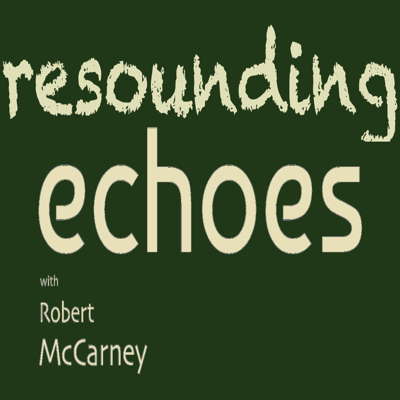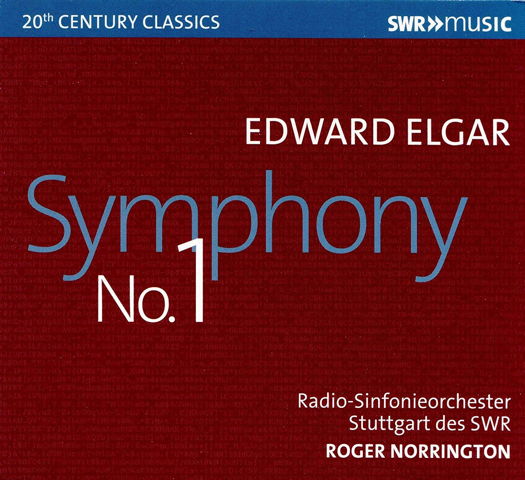 RESOUNDING ECHOES: Beginning in 2022, Robert McCarney's occasional series features little-known twentieth century classical composers.
RESOUNDING ECHOES: Beginning in 2022, Robert McCarney's occasional series features little-known twentieth century classical composers.

Triumphant Splendour
GERALD FENECH commends the reissue
of Roger Norrington's recording
of Elgar's Symphony No 1
with the Stuttgart Radio Symphony Orchestra
'... Norrington conveys the sweep of the score spontaneously in one breath and takes his players on a headlong ride to the finish which is simply spinetingling.'
Born in 1857, Edward Elgar, maybe England's greatest twentieth century composer, had to wait until June 1899 to make the cut with his Enigma Variations, now considered as his greatest orchestral work. Until then he had been struggling to make a real breakthrough, despite some substantial choral works, such as King Olaf and Caractacus. Following the 'Enigma', Elgar's genius as a composer exploded and the next decade saw such masterpieces as The Dream of Gerontius, The Apostles and The Kingdom, culminating in his First Symphony of 1908. By this time Elgar's popularity had reached fever-pitch but sadly, his financial situation remained precarious. It was only through the immense success of this symphonic masterpiece that his plight started to improve.
The great German conductor Hans Richter had this to say while rehearsing the work with the London Symphony Orchestra at Queen's Hall on 6 December 1908: 'Gentlemen - now let us rehearse the greatest symphony of modern times written by the greatest modern composer, and not only in this country'. The premiere five days before in Manchester, with the same Richter conducting the Hallé Orchestra, simply swept the audience off their feet, and in the following years the work was performed in all the major musical centres with almost one hundred performances in the first year alone.
The symphony opens with an amazingly noble theme that subsequently recurs again and again, at times slightly altered.
Listen — Elgar: Andante (Symphony No 1)
(track 1, 0:36-1:19) © 1999 SWR Media Services GmbH,
2019 Naxos Deutschland Musik & Video Vertriebs GmbH :
This theme gives the whole work an internal coherence, similar to a leitmotif, but there are other motifs and ideas as well that link the movements with one another. The first theme of the slow movement, for instance, sets in with exactly the same notes as the first theme of the preceding second movement. The work ends with an orchestral finale full of triumphant splendour.
This recording by Roger Norrington and his Stuttgart Orchestra, dating from October 1999, has some stiff competition from some great conductors, both English and foreign, but critics agree that this version remains until now the best performance to come from the continent. Indeed, Norrington conveys the sweep of the score spontaneously in one breath and takes his players on a headlong ride to the finish which is simply spinetingling.
Listen — Elgar: Allegro (Symphony No 1)
(track 4, 9:37-10:37) © 1999 SWR Media Services GmbH,
2019 Naxos Deutschland Musik & Video Vertriebs GmbH :
A bonus in the programme is a stirring version of Wagner's Meistersinger Overture recorded in November of that same year.
Listen — Wagner: Overture from Die Meistersinger von Nürnberg
(track 5, 3:33-4:33) © 1999 SWR Media Services GmbH,
2019 Naxos Deutschland Musik & Video Vertriebs GmbH :
A commendable reissue in excellent sound quality and helpful annotations.
Copyright © 23 August 2019
Gerald Fenech,
Gzira, Malta

CD INFORMATION - EDWARD ELGAR: SYMPHONY NO 1



